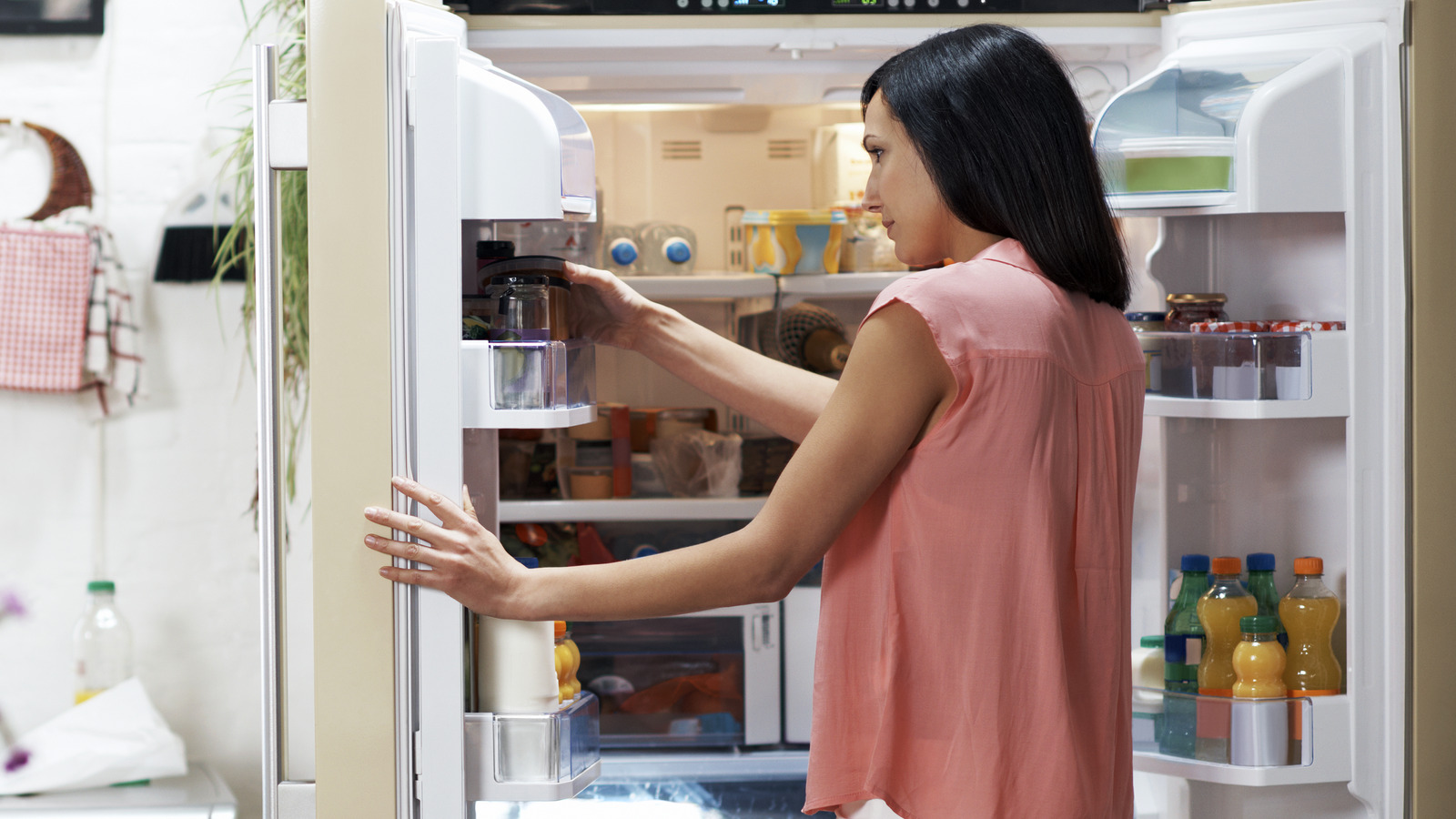
The Spots In Your Fridge That Are Dirtier Than Your Toilet Seat – Health Digest
Your kitchen can often be your sanctuary, giving you access to your favorite comfort food any time of the day. Cooking a fun meal with friends might be the perfect stress reliever for you.
However, you should be aware that your refrigerator could be a favorite camping spot for many foodborne pathogens. The Centers for Disease Control and Prevention estimates that 1 out of 6 people in the United States gets sick each year from foodborne illnesses. You would think that food in your refrigerator would be safe from these pathogens. However, it’s a myth that these bacteria can’t survive in your refrigerator, according to Daily Laboratories. Listeria monocytogenes can survive in temps as low as 35 degrees Fahrenheit.
The National Science Foundation looked at some of the dirtiest places in your kitchen and found that the top two spots are your vegetable and meat compartments in your refrigerator. They found salmonella, listeria, yeast, and mold growing in these places. The NSF suggests cleaning your vegetable and meat compartments with hot soapy water each month, but there are other things you can do to prevent your food from contamination.
How to handle raw meat properly
 Evgeniia Trushkova/Shutterstock
Evgeniia Trushkova/Shutterstock
Not to gross you out, but raw meat can have fecal bacteria from the organs of animals, according to The Healthy. While you’re at the grocery store, the Minnesota Department of Health suggests keeping meat, poultry, and seafood separate in your shopping cart and bags.
Once you get home, continue to keep them separate. To prevent any juices from dripping onto other surfaces in your refrigerator, place the meats in separate containers or bags.
You’ll also want to be careful when you handle raw meat, seafood, and poultry to avoid any harmful bacteria getting on your hands, kitchen utensils, counters, and sink. According to the U.S. Department of Agriculture, even if you wash your hands after handling raw meat, you still have to scrub your hands for at least 20 seconds to make sure they’re clean.
If your meat touches surfaces in your kitchen such as your countertops or cutting boards, they should be washed, too. Not only that, but your already dirty cutting board or countertop could also contaminate your meats or poultry. Foodborne illness-causing bacteria such as campylobacter, salmonella, and norovirus can survive on your kitchen surfaces and utensils for hours.
To help avoid foodborne illness while you’re cooking, handle all food that isn’t going to be cooked first, such as fruits and vegetables. After you’ve handled the raw meat or poultry, clean then sanitize all surfaces that have contacted the meat.
How to handle your fruits and vegetables
 Hocus-focus/Getty Images
Hocus-focus/Getty Images
While we’re always encouraged to eat more fruits and vegetables, you’ll want to take care in handling them. According to the Centers for Disease Control and Prevention, raw fruits and vegetables often will have salmonella, listeria, or E. coli, and that’s why these healthy foods often contribute to many of the foodborne illnesses in the United States. While you’re at the store, keep your fruits and vegetables separate from your meats, seafood, and poultry.
Although cooking fruits and vegetables can protect you from harmful pathogens, eating them raw is okay if you give them a good wash in running water. Avoid using any detergents or commercial produce washes, and avoid bleach or disinfectants. Cut away bruises or damaged parts of your fruits and vegetables because they can hold germs. Outer leaves from lettuce or cabbage should also be removed. If you aren’t going to use your fruits and vegetables right away, store them in the refrigerator at 40 degrees or cooler. The only type of produce you should avoid eating raw is sprouts because their growing conditions make them breeding grounds for bacteria.




































































